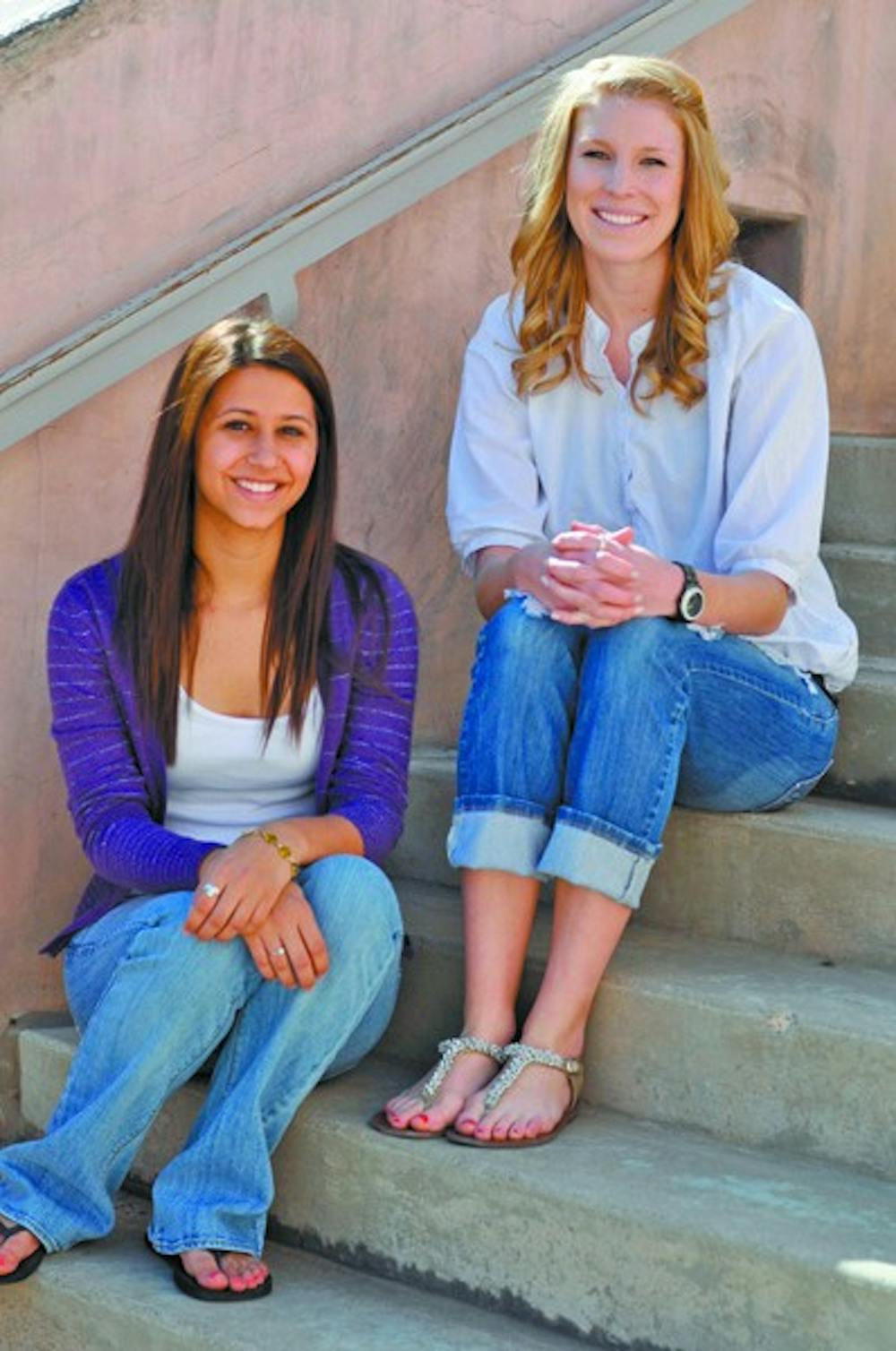Nicollette Lewis and Priya Nathan couldn’t stand by when they found out many of the 10,000 foster children in Arizona are unprepared for college.
Lewis, a business management senior, and Nathan, a marketing junior, formed the idea for a mentoring program called Partnered for Success about a year and a half ago. They are now preparing to start a pilot project in the fall.
Lewis, who is an orphan, wants to help foster children who lack the stability of a constant home as well as orphans because she can relate to the needs of teens without parents.
“I went to live with my aunt and uncle, but I still faced a lot of the same needs … It wasn’t like I could call mom and dad when I needed money. That wasn’t an option,” Lewis said.
Lewis and Nathan worked with the local nonprofits Arizona Friends of Foster Children and Phoenix Youth at Risk to design the mentoring program.
They won $1,000 for their idea last week from the ASU Innovation Challenge, which awards money for ideas that will make changes in the local and global community. The majority of the 16 winners were engineering concepts that solved a problem through technology.
But Nathan and Lewis are hoping to build relationships with 15- and 16-year-olds who will be referred to them by the two nonprofit organizations and high school counselors.
Their program is based around three components: personal growth workshops, community service and a mentorship program.
The workshops will help teens learn how to get ready for college and live on their own. To supplement these workshops, a mentorship program will match ASU students with teens to provide support that might not otherwise be available, Nathan said.
“We have to build this trust with them and show we are not going to be another person to leave in two months,” Lewis said.
Eventually they hope to pair each teen with an ASU mentor who shares similar interests, but this first year they are going to work in a group setting.
“It made more sense our first year for our pilot program to have a collective base of a lot of mentors,” Nathan said. “ So [the teens] know that they have a lot of people they can turn to.”
In addition to serving the youth, they want the teens to get involved in community service, because it will give them an opportunity to feel connected to the community, Nathan said.
The program started as a project for the ASU Tillman Scholars - Leadership Through Action Program, which teaches students about leadership and community involvement through a yearlong class.
Hunter Riley, program director for the Pat Tillman Foundation and the adviser to the mentorship program, said other programs stemming from the leadership class range from full-scale nonprofits to small personal projects like making blankets for veterans. Although few turn their ideas into careers, many continue to serve.
“A great percentage of Tillman scholars transition into post-college life and still have a service component of their everyday lives,” Riley said.
Lewis plans to use her degree in business to run the organization as a nonprofit when she graduates in December. She said it was the perfect outlet that fit her skill set.
“I have such a business mind but a nonprofit heart,” Lewis said.
Reach the reporter at mary.shinn@asu.edu





